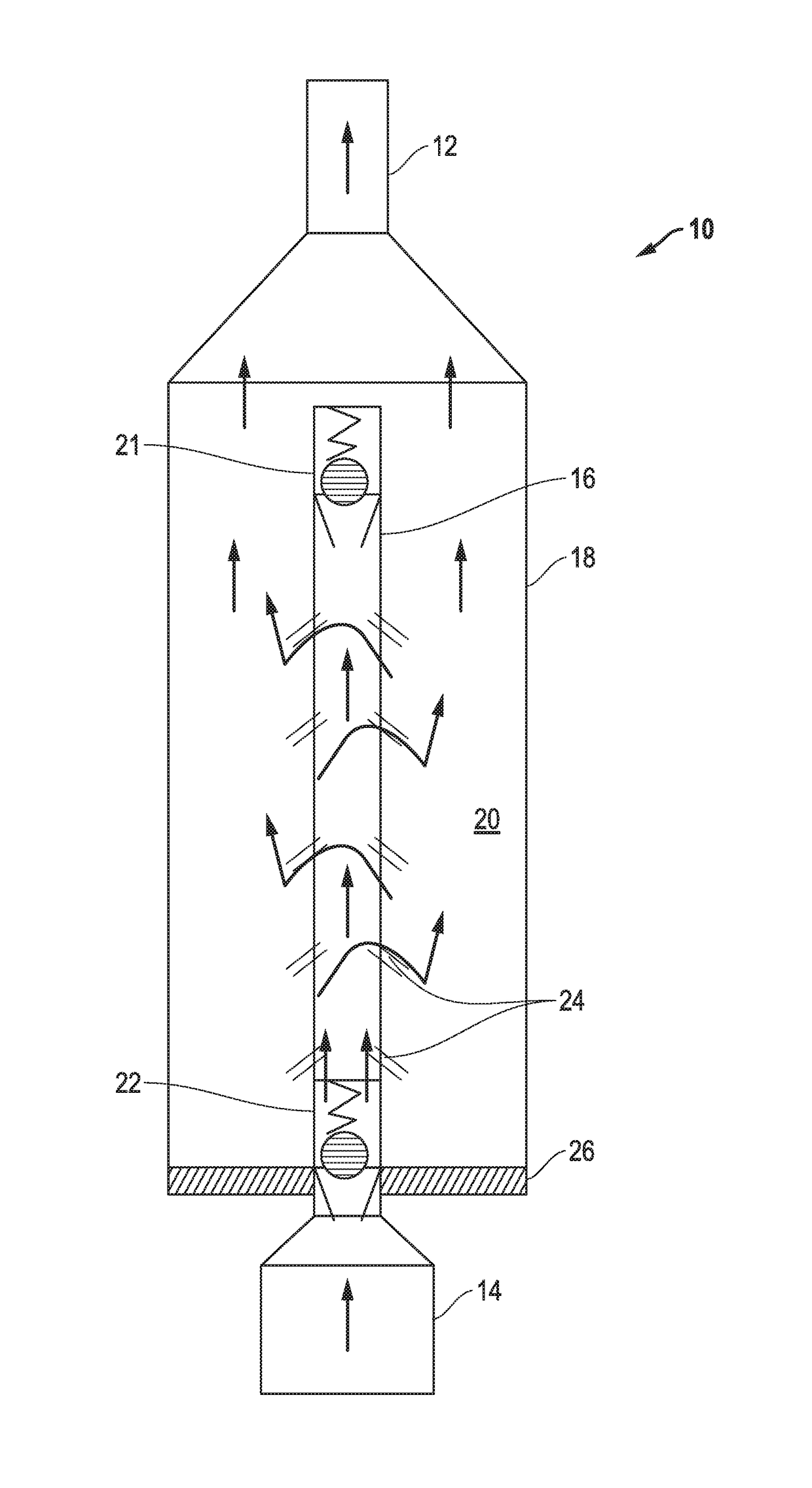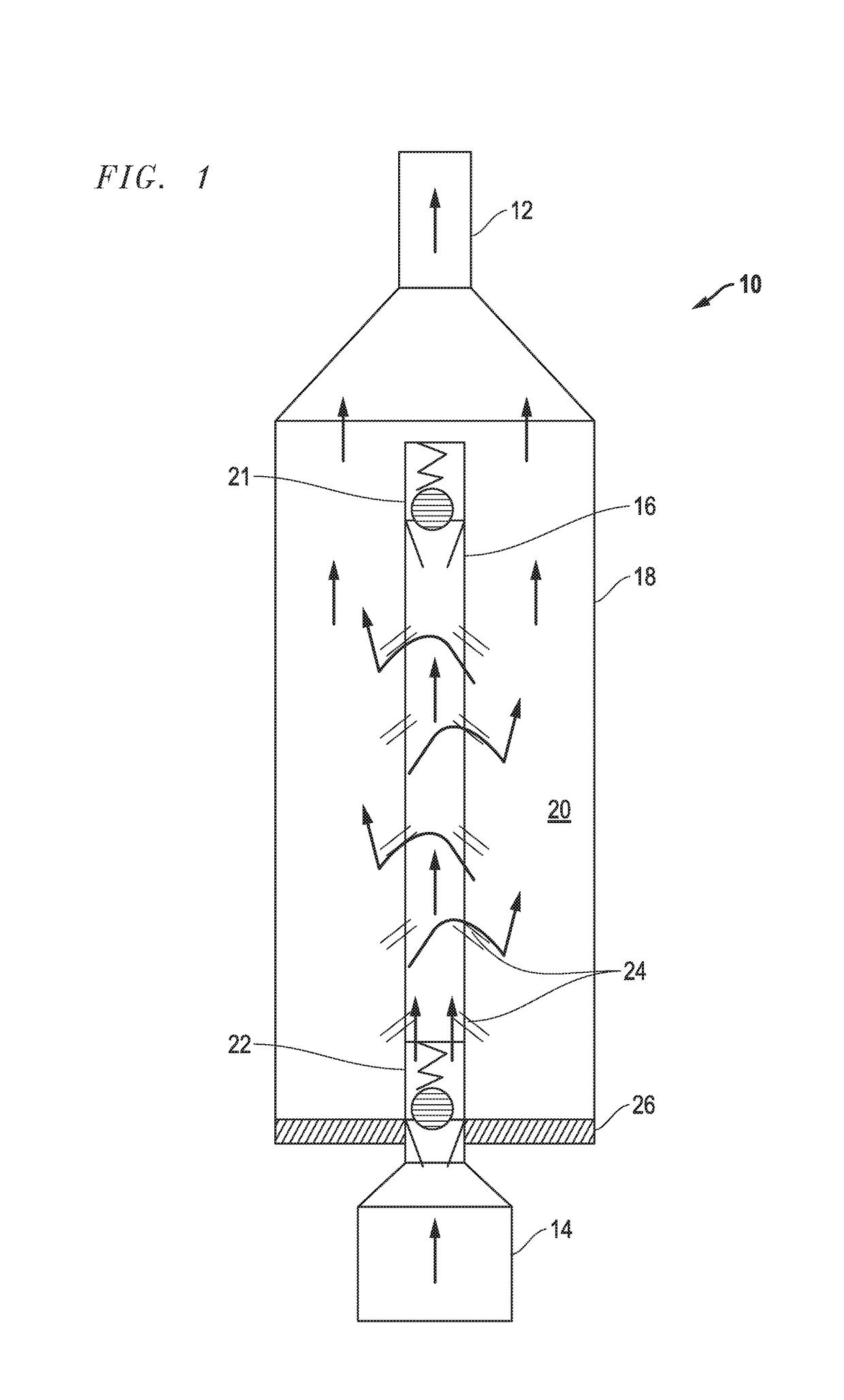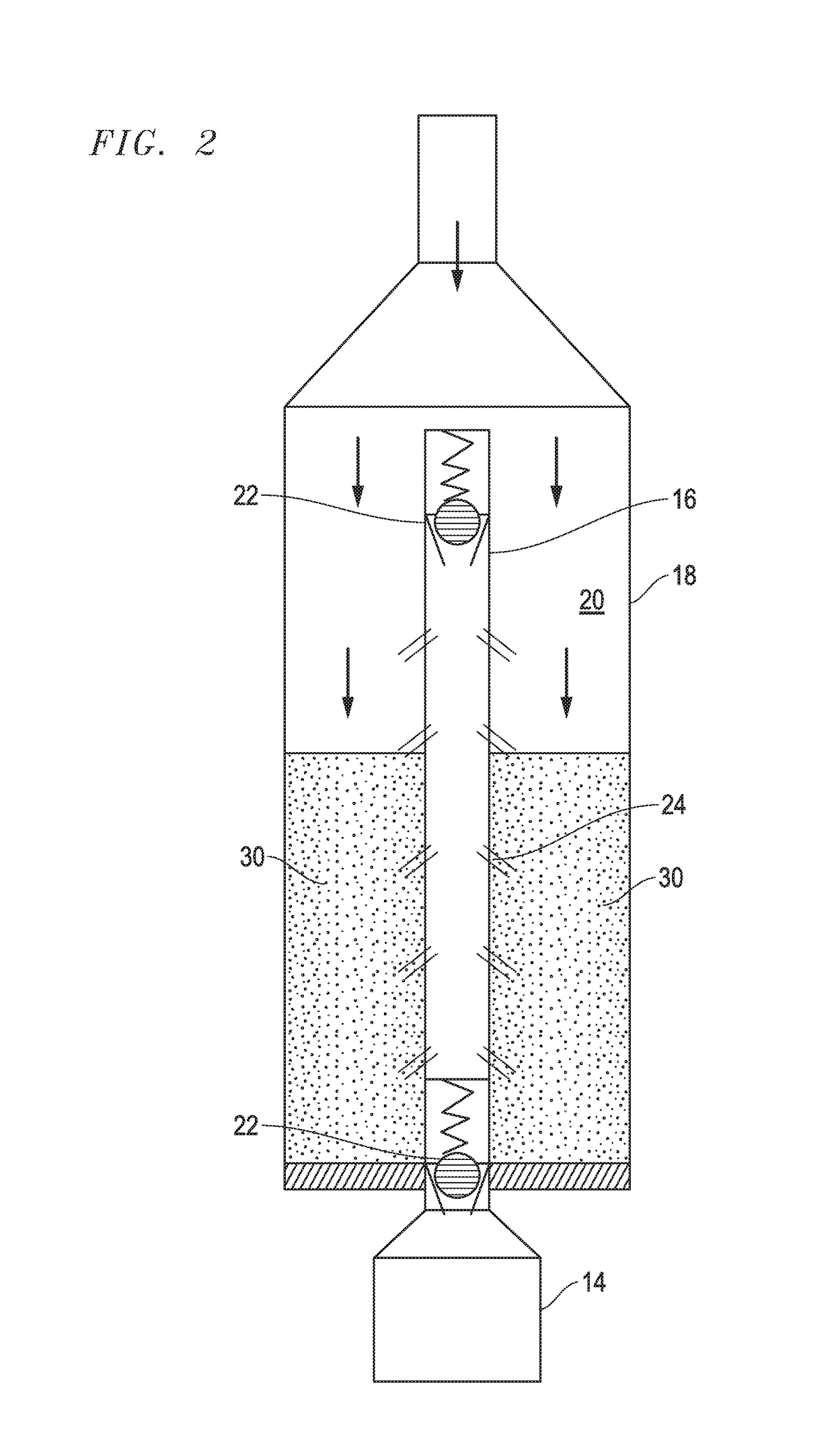Apparatus and method for preventing particle interference of downhole devices
a technology of particle interference and equipment, applied in the direction of fluid removal, wellbore/well accessories, construction, etc., can solve the problems of often stopping esp's, intentional and unintentional, and sand management in the well bore, so as to prevent particle interference with lifting equipment, improve safety, and improve safety. the effect of operation efficiency
- Summary
- Abstract
- Description
- Claims
- Application Information
AI Technical Summary
Benefits of technology
Problems solved by technology
Method used
Image
Examples
first embodiment
[0020]Turning to the drawings, a device 10 in accordance with the present invention is illustrated in FIGS. 1-5. The device 10 is inserted as part of the production tubing string with FIG. 1 showing production tubing 12 leading to the surface and ESP 14 located downhole adjacent to the device 10. It should be understood that the device 10 can be spaced from the ESP and in fact, multiple devices 10 can be used in the production tubing string. Further, while FIG. 1 appears as a conventional vertical orientation, the device 10 can also be used in horizontal wells. Additionally, while the usefulness of the device 10 is illustrated in this embodiment as protecting an ESP, other downhole devices can be similarly protected from particles such as sand or fracking proppants.
[0021]Generally, the device 10 includes a central production tube 16 surrounded by an enlarged cylinder housing 18. Thus, the area between the tube 16 and the inner walls of the cylinder 18 define an annulus 20. At each e...
second embodiment
[0029]a device 50 in accordance with the present invention is illustrated in FIGS. 6-9. The device 50 is inserted as part of the production tubing string with FIG. 6 showing production tubing 12 leading to the surface and ESP 14 located downhole adjacent to the device 50. It should be understood that the device 50 can be spaced from the ESP and in fact, multiple devices 50 can be used in the production tubing string. Further, while FIG. 6 appears as a conventional vertical orientation, the device 50 can also be used in horizontal wells. Additionally, while the usefulness of the device 50 is illustrated in this embodiment as protecting ESP 14, other downhole devices can be similarly protected from particles such as sand or fracking proppants.
[0030]Generally, the device 50 includes a central cylindrical tube 56 surrounded by an enlarged cylinder housing 58. Thus, the area between the tube 56 and the inner walls of the cylinder 18 define an annulus 60. At the distal end 72 of the tube ...
PUM
 Login to View More
Login to View More Abstract
Description
Claims
Application Information
 Login to View More
Login to View More - R&D
- Intellectual Property
- Life Sciences
- Materials
- Tech Scout
- Unparalleled Data Quality
- Higher Quality Content
- 60% Fewer Hallucinations
Browse by: Latest US Patents, China's latest patents, Technical Efficacy Thesaurus, Application Domain, Technology Topic, Popular Technical Reports.
© 2025 PatSnap. All rights reserved.Legal|Privacy policy|Modern Slavery Act Transparency Statement|Sitemap|About US| Contact US: help@patsnap.com



